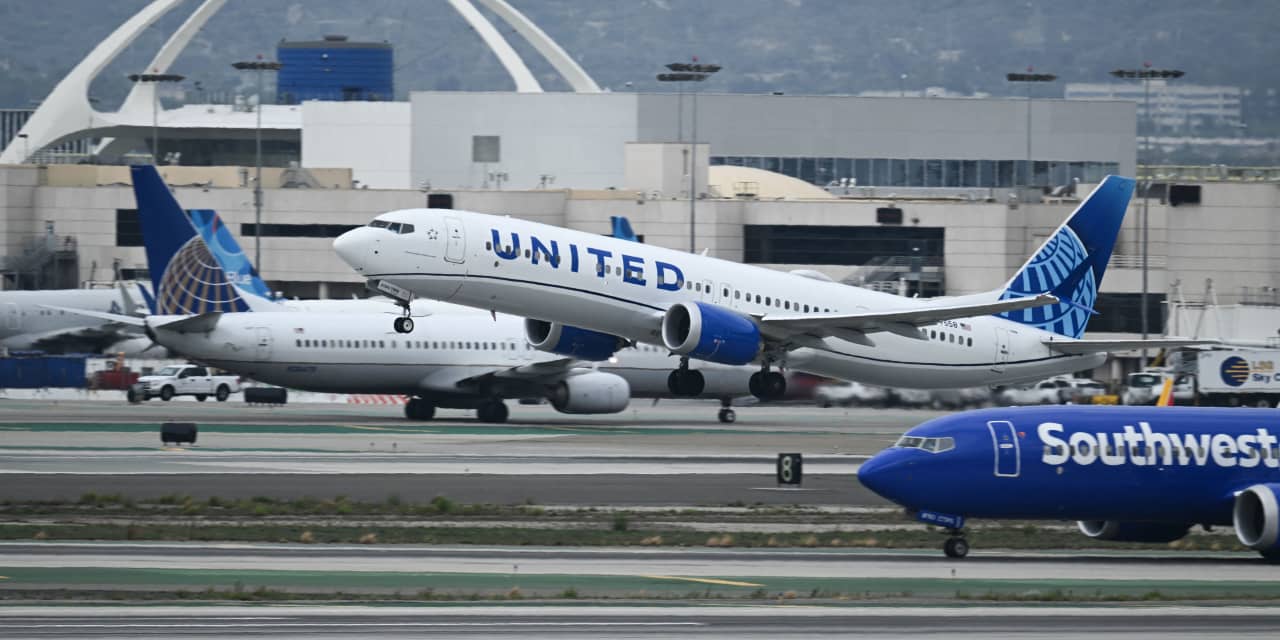A Federal Aviation Administration order on Saturday grounding nearly 200
Boeing
airplanes spells big trouble for the aircraft manufacturer, which is still struggling to recover from the lengthy grounding of all its 737 MAX jets in 2019 and 2020.
The FAA order grounds 171
Boeing
737 MAX 9 aircraft, the vast majority of the 214 MAX 9 the company has delivered around the world. It comes after a part of the fuselage of an
Alaska Air Group
plane flying out of Portland, Ore., on Friday “popped off” shortly after takeoff, according to a passenger who spoke with CNN, leaving a large hole in the side of the airplane.
The plane involved in the Friday incident was brand-new and had only been in the Alaska Airlines fleet since November.
The FAA called the grounding temporary, and said that airlines will be required to inspect each 737 MAX 9 aircraft before it can fly. It said each inspection will take between four and eight hours.
The incident is just the latest in a long string of safety issues for Boeing’s 737 MAX, among them two fatal crashes in 2018 and 2019. In August, a Boeing subcontractor,
Spirit AeroSystems,
disclosed a quality issue involving the fuselages it manufactures for the 737 MAX, and in late December, the FAA said that Boeing had asked carriers to inspect all 737 MAX aircraft for loose bolts.
The Friday incident is once again drawing attention to the MAX fleet’s history of safety concerns, and could spook investors holding shares of Boeing and its subcontractor Spirit.
Boeing said Saturday that it supported the FAA’s temporary grounding of the MAX 9 planes with the same configuration as the plane involved in the Alaska incident. “We agree with and fully support the FAA’s decision to require immediate inspections of 737-9 airplanes with the same configuration as the affected airplane,” the company said.
Spirit referred queries to Boeing.
Boeing shares dropped more than 70% from March 2019 through April 2020, amid the FAA grounding of the 737 MAX fleet. Shares rose 36.8% in 2023, but the stock’s Friday close of $249 remains well below the range in which shares traded in 2018 and 2019, before the company’s 737 MAX troubles became apparent.
Spirit shares, meanwhile, dropped by roughly 50% following the disclosure of the quality issue in August. They have since rebounded, but the new incident could reawaken investors’ concerns.
The aircraft’s issues have caused regulators and others to question Boeing’s judgment. Reporting about the 2018 and 2019 crashes that led to the 2019 FAA grounding raised questions about decisions that went into the plane’s design, while a 2020 Congressional report pointed to “a disturbing pattern of technical miscalculations and troubling management misjudgments made by Boeing.”
The 737 MAX 9 was one of two similar Boeing models grounded by the FAA in March 2019, following two fatal crashes involving slightly shorter 737 MAX 8 aircraft in late 2018 and early 2019. The FAA allowed the 737 MAX aircraft to return to service in late 2020, after requiring a number of design changes. Boeing has since struggled to meet production goals on its 737 MAX planes.
Write to Josh Nathan-Kazis at [email protected]
Read the full article here




